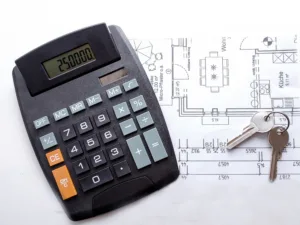In an age where technology has become an integral part of nearly every industry, it’s no surprise that the construction sector is also experiencing a shift towards embracing innovation. Historically known for being conservative in adopting new technologies, the construction industry is now recognizing the value that these advancements bring to the table. Among the most influential innovations in recent years is construction management software (CMS), a tool that promises to reshape how construction projects are planned, executed, and managed.
This article will delve into the myriad benefits that construction management software offers, including its ability to streamline project management, enhance cost control measures, improve overall quality and safety, provide increased mobility and flexibility, and facilitate data-driven decision-making. By exploring the potential of CMS, professionals within the construction industry will gain a better understanding of how this cutting-edge technology can lead to greater efficiency and productivity within their projects.
Table of Contents
1. Streamlined Project Management
Efficient project management is at the core of any successful construction endeavor, and construction management software (CMS) stands out among the most effective project management tools for enhancing project management efficiency. The introduction of CMS has revolutionized the way construction professionals manage their projects, leading to significant improvements in organization, communication, collaboration, and proactive management. This, in turn, facilitates better performance and outcomes by providing remote access to project details and improving overall project efficiency.
A. Centralized platform for project information
Construction project management software serves as a centralized platform for all project-related data, making it easy for team members to access vital information whenever needed. This eliminates the need to search through piles of paperwork or numerous spreadsheets, saving valuable time and minimizing the risk of misplaced or outdated documents. By having all data available in one place, team members can quickly find and update information, leading to a more organized and efficient workflow.
B. Improved communication and collaboration
Effective communication is key to the success of any construction project. Construction management software enables real-time communication among team members, allowing them to share updates, documents, and important decisions instantly. This seamless flow of information fosters a collaborative environment and ensures that everyone is on the same page, reducing the likelihood of costly misunderstandings or delays.
C. Efficient scheduling and resource allocation
Scheduling and resource allocation are critical aspects of project management. Construction management software allows project managers to create and update schedules with ease, enabling them to allocate resources optimally and track progress in real-time. This functionality helps project managers identify potential bottlenecks or resource conflicts early on, allowing them to make adjustments as needed and ensuring the project stays on track. Construction managers specifically benefit from using construction management software for scheduling and resource allocation, enhancing their ability to oversee projects efficiently.
D. Real-time updates and progress tracking
The ability to monitor project progress in real-time is another benefit offered by construction management software. With instant access to up-to-date information, project managers can quickly identify any deviations from the planned schedule or budget, enabling them to address issues promptly and make informed decisions. This level of visibility into project performance helps maintain control over project timelines and budgets, ultimately leading to more successful outcomes.
E. Case study/example: Successful implementation of CMS in a project
A construction company specializing in commercial projects was struggling with communication and coordination among various project stakeholders, leading to frequent delays and budget overruns. By implementing a construction management software solution, the company was able to centralize all project-related information, streamline communication, and improve scheduling and resource allocation. As a result, the company saw a notable reduction in project delays, better budget control, and increased overall efficiency.
Construction management software has significantly streamlined the project management process by providing a centralized platform for information, fostering improved communication and collaboration, and enabling efficient scheduling and resource allocation. These advantages contribute to a more organized and effective workflow, ultimately leading to the successful completion of construction projects.
2. Improved Cost Control
Effective cost control and better budget management are paramount to the success of any construction project. With construction management software, project managers can more accurately estimate costs, monitor expenses, reduce inefficiencies, and improve estimating processes, ultimately leading to better financial outcomes for their projects.
A. Accurate cost estimation and budgeting
Estimating costs accurately is crucial for establishing a realistic budget and ensuring the project remains financially viable. Construction management software offers advanced tools that help project managers create detailed cost estimates by considering factors such as labor, materials, equipment, and other expenses. These tools enable a more precise budgeting process, minimizing the risk of unexpected financial surprises down the line.
B. Monitoring and controlling expenses in real-time
Once the budget is set, it’s essential to monitor expenses closely to ensure they remain in line with projections. Construction management software allows project managers to track expenses in real-time, making it easy to identify any potential budget overruns or discrepancies. This level of financial visibility helps project managers maintain control over costs and make necessary adjustments as the project progresses.
C. Reduction of waste and inefficiencies
Construction projects often involve considerable waste, both in terms of materials and time. Construction management software can help identify and reduce these inefficiencies by providing insights into areas where resources are not being used optimally. By addressing these issues, project managers can minimize waste, lower costs, and improve overall project efficiency.
D. Financial reporting and analysis
Effective financial management requires regular reporting and analysis to evaluate the project’s financial health. Construction management software offers robust reporting tools that help project managers generate detailed financial reports with ease. These reports provide valuable insights into project performance and can be used to make data-driven decisions to keep the project on track and within budget.
E. Case study/example: Cost savings achieved through CMS
A residential construction company was experiencing cost overruns and project delays due to poor cost estimation and inefficient resource management. By implementing construction management software, the company was able to improve its cost estimation process, leading to more accurate budgets. Additionally, the software provided real-time expense tracking, enabling project managers to identify and address budget issues promptly. As a result, the company significantly reduced cost overruns and increased overall project profitability.
Construction management software offers a range of tools and features that help improve cost control in construction projects. By enabling more accurate cost estimation, real-time expense monitoring, and reduction of waste and inefficiencies, construction management software contributes to better financial outcomes and increased project success.
3. Enhanced Quality and Safety
Maintaining high standards of quality and safety is crucial for any construction project, as it directly impacts the project’s reputation, durability, and the well-being of all stakeholders involved. Construction management software offers various features that help improve quality and safety, leading to better project outcomes and reduced risks.
A. Standardized processes and documentation
One of the key aspects of ensuring quality and safety is having standardized processes and documentation in place. Construction management software allows project managers to create templates for essential documents, such as quality control plans, safety checklists, and inspection reports. By having standardized templates, project managers can ensure that all team members follow the same guidelines, which contributes to consistent quality and safety throughout the project.
B. Digital quality and safety inspections
Conducting regular inspections is critical for maintaining quality and safety standards on a construction site. Construction management software offers digital inspection tools that allow project managers to schedule, conduct, and document inspections using their mobile devices. These digital inspections not only save time and reduce paperwork but also ensure that inspection data is stored securely and is easily accessible for future reference.
C. Risk management and mitigation
Identifying and mitigating risks is essential for maintaining a safe work environment and ensuring project success. Construction management software helps project managers identify potential risks by providing real-time data on project performance, resources, and safety metrics. By proactively addressing these risks, project managers can prevent accidents, reduce delays, and minimize potential liabilities.
D. Compliance with industry regulations and standards
Adhering to industry regulations and standards is a fundamental aspect of quality and safety management. Construction management software can help project managers ensure compliance by providing features that track and store essential documentation, such as permits, certifications, and inspection reports. This not only simplifies the compliance process but also reduces the risk of fines or penalties due to non-compliance.
E. Case study/example: Improved safety records with CMS implementation
A large construction company was struggling with safety incidents and non-compliance issues, resulting in costly fines and project delays. After implementing a construction management software solution, the company was able to standardize safety processes, conduct digital inspections, and improve risk management. As a result, the company saw a significant reduction in safety incidents and increased compliance with industry regulations, leading to improved project outcomes and reputation.
Construction management software plays a vital role in enhancing quality and safety in construction projects. By providing standardized processes, digital inspection tools, risk management features, and compliance tracking, construction management software helps project managers maintain high standards and reduce risks, contributing to successful project outcomes.
4. Increased Mobility and Flexibility
The construction industry is characterized by its dynamic nature, with projects often spanning across multiple locations and involving a diverse range of stakeholders. Utilizing project management software in construction offers increased mobility and flexibility, enabling real-time collaboration, intelligent data analysis, and efficient management of construction project lifecycles. This digital tool allows project managers and team members to access essential information and communicate effectively, regardless of their location, ensuring projects align with initial budget estimates and timelines.
A. Cloud-based solutions for remote access
One of the primary advantages of construction management software is its cloud-based architecture. This means that project data is stored securely in the cloud, allowing team members to access information from any device with an internet connection. This remote access capability is especially valuable for construction professionals who frequently work on-site or travel between locations, as it enables them to stay connected and make informed decisions on the go.
B. Mobile apps for on-site data collection and updates
Construction management software often comes with mobile apps designed for use on smartphones and tablets. These apps enable team members to collect and update project data directly from the construction site, such as capturing progress photos, logging material deliveries, or completing safety checklists. By allowing real-time data collection and updates, mobile apps help maintain accurate project records and facilitate better decision-making.
C. Improved decision-making with real-time data
Access to real-time data is crucial for making informed decisions in a dynamic industry like construction. Construction management software provides project managers and stakeholders with up-to-date information on project progress, resources, and financials, enabling them to make data-driven decisions quickly and confidently. This real-time visibility into project performance helps teams identify and address potential issues before they escalate, ultimately leading to better project outcomes.
D. Case study/example: Enhanced mobility in a construction project using CMS
A mid-sized construction firm was facing challenges in coordinating and managing multiple projects spread across different locations. The lack of real-time information and difficulties in communication were causing delays and negatively impacting project performance. By adopting a construction management software solution with cloud-based functionality and mobile apps, the firm was able to improve remote access to project data, streamline communication, and facilitate real-time decision-making. As a result, the firm experienced increased efficiency, better project coordination, and reduced delays across all projects.
In summary, construction management software offers increased mobility and flexibility, enabling construction professionals to work effectively from any location. By providing cloud-based solutions, mobile apps, and real-time data access, construction management software empowers teams to make informed decisions and adapt to the ever-changing demands of the construction industry.
5. Data-Driven Decision Making
Choosing the right construction management software is essential for enabling effective data-driven decision-making, as it tailors to specific needs while enhancing project organization, collaboration, productivity, and profitability. In today’s competitive construction landscape, the ability to make data-driven decisions is crucial for maintaining a competitive edge and ensuring project success. Construction management software equips project managers with the necessary tools and insights to make informed decisions based on comprehensive data analysis.
A. Comprehensive data analysis and visualization
Construction management software offers a wealth of data analysis tools that can help project managers gain valuable insights into project performance. By analyzing data from various sources, such as schedules, budgets, resources, and quality metrics, project managers can identify trends, patterns, and potential issues. Additionally, many construction management software solutions include data visualization features that enable project managers to view complex data in an easily digestible format, making it simpler to communicate findings with stakeholders.
B. Performance metrics and key performance indicators (KPIs)
To make data-driven decisions, project managers need access to relevant performance metrics and key performance indicators (KPIs). Construction management software allows users to define and track KPIs specific to their projects, such as cost variance, schedule performance index, and safety incident rates. By monitoring these KPIs, project managers can quickly identify areas of concern and take corrective actions to ensure project success.
C. Identification of trends and areas for improvement
With access to comprehensive data analysis, project managers can identify trends and areas for improvement within their projects. For example, they might notice that certain tasks consistently take longer than expected, indicating that additional resources or training might be necessary. By addressing these trends proactively, project managers can optimize project performance and achieve better results.
D. Facilitating data-driven decision making
By leveraging the insights gained from data analysis and KPI monitoring, project managers can make informed decisions that drive project success. Construction management software provides the necessary tools and information to support data-driven decision-making, enabling project managers to make adjustments based on real-time data and ultimately improve project outcomes.
E. Case study/example: Successful data-driven decisions using CMS
A construction company was struggling with project delays and cost overruns due to poor decision-making. After implementing a construction management software solution, the company was able to gather and analyze project data more effectively, helping them identify trends and areas for improvement. By utilizing data-driven insights, the company’s project managers were able to make informed decisions that led to improved project performance, reduced delays, and better cost control.
In conclusion, construction management software plays a crucial role in facilitating data-driven decision-making within the construction industry. By providing comprehensive data analysis tools, performance metrics, and KPI tracking, construction management software enables project managers to make informed decisions that contribute to improved project outcomes and overall success.
6. Integrations and Scalability
The construction industry relies on various tools and software applications to manage different aspects of a project. To fully maximize the benefits of construction management software, it is essential that it integrates seamlessly with other tools and scales to accommodate the growing needs of a project or organization.
A. Seamless integration with existing tools
Construction management software is designed to work in harmony with other tools and software applications commonly used in the construction industry, such as accounting software, building information modeling (BIM) software, and document management systems. These integrations facilitate a smooth flow of information between different systems, eliminating data silos and ensuring that all stakeholders have access to up-to-date information. By streamlining the flow of data, construction management software enhances overall project efficiency and minimizes the risk of errors.
B. Scalability to accommodate project growth
As construction projects grow in complexity and scale, it is crucial that the construction management software used can adapt to accommodate these changes. Scalable software solutions can support a range of project sizes, from small residential projects to large-scale commercial developments, and can be easily expanded to include additional features, users, or storage capacity as required. This scalability ensures that the construction management software remains a valuable asset for the organization, regardless of how its needs evolve over time.
C. Customizable features to meet unique requirements
Every construction project is unique, and it is important that the construction management software used can be customized to meet the specific needs of each project. Many construction management software solutions offer customizable features, such as custom workflows, templates, and reports, which can be tailored to suit the specific requirements of a project or organization. This customization enables project managers to create a bespoke solution that best supports their team and ensures the successful completion of their projects.
D. Case study/example: Seamless integration and scalability in action
A growing construction company was using multiple tools and software applications to manage its projects, resulting in inefficient workflows and disjointed communication. By implementing a construction management software solution with seamless integration capabilities, the company was able to consolidate its various tools and create a centralized platform for project management. This integration improved communication, collaboration, and overall project efficiency. Additionally, the software’s scalability allowed the company to accommodate its growing needs, ensuring that the solution remained effective as the company expanded and took on larger, more complex projects.
In summary, integrations and scalability are critical factors to consider when selecting a construction management software solution. By ensuring seamless integration with existing tools and providing the ability to scale as needed, construction management software can effectively support the diverse and evolving needs of the construction industry, ultimately contributing to more successful project outcomes.
7. Future Trends in Construction Management Software
As technology continues to advance at a rapid pace, the construction industry is embracing new innovations to improve project efficiency, productivity, and overall success. Construction management software is no exception, as developers continue to enhance and expand their offerings to meet the ever-changing needs of the industry. Here are some of the future trends we can expect to see in construction management software:
A. Artificial Intelligence (AI) and Machine Learning
AI and machine learning technologies are poised to revolutionize construction management software by automating repetitive tasks, optimizing workflows, and providing predictive analytics to guide project planning and decision-making. By leveraging AI-driven insights, construction professionals can identify potential issues and opportunities early on, ultimately improving project outcomes and reducing the likelihood of costly mistakes.
B. Virtual Reality (VR) and Augmented Reality (AR)
Virtual reality and augmented reality technologies have the potential to transform the way construction professionals interact with project data and visualizations. By integrating VR and AR capabilities into construction management software, users can experience immersive 3D models, conduct virtual walkthroughs, and collaborate on design changes in real-time. This enhanced visualization and collaboration can lead to more accurate project planning and execution, ultimately reducing errors and rework.
C. Internet of Things (IoT) Integration
The Internet of Things (IoT) refers to the network of interconnected devices and sensors that collect and exchange data. In the context of construction management software, IoT integration enables real-time data collection from a project site, providing valuable insights into equipment usage, worker productivity, and environmental conditions. By incorporating IoT data into construction management software, project managers can make more informed decisions and optimize project performance.
D. Increased Focus on Sustainability
As the construction industry faces growing pressure to minimize its environmental impact, construction management software developers are increasingly incorporating sustainability features and metrics into their solutions. These features enable project managers to monitor and optimize resource usage, waste reduction, and energy efficiency, ultimately contributing to more sustainable construction practices and improved environmental outcomes.
E. Enhanced Collaboration and Communication
Effective collaboration and communication are essential for successful construction projects. Future trends in construction management software will likely focus on enhancing these aspects, incorporating features such as real-time chat, document sharing, and task assignment, to facilitate seamless collaboration among project stakeholders. By improving communication and collaboration, construction management software can help reduce project delays, improve resource allocation, and ensure that all stakeholders are working towards a common goal.
F. Case study/example: Embracing future trends for improved project outcomes
A forward-thinking construction company recognized the potential of emerging technologies to enhance its project management processes. By implementing a construction management software solution that incorporated AI-driven insights, AR visualizations, and IoT integration, the company was able to improve project planning, optimize resource allocation, and minimize waste. As a result, the company experienced significant improvements in project efficiency, productivity, and overall success.
In conclusion, the future of construction management software is expected to be shaped by a range of innovative technologies and features, including AI, VR, AR, IoT, and an increased focus on sustainability. By staying informed of these trends and adopting cutting-edge solutions, construction professionals can position themselves at the forefront of the industry, driving improvements in project outcomes and setting new standards for success.
Conclusion
The construction industry has undergone significant transformation in recent years, driven by technological advancements and the adoption of innovative tools like construction management software. These powerful software solutions have proven invaluable in streamlining project management processes, improving cost control, enhancing quality and safety, increasing mobility and flexibility, facilitating data-driven decision-making, and integrating seamlessly with other tools in the construction ecosystem.
As we look towards the future, construction management software will continue to evolve, incorporating cutting-edge technologies such as AI, VR, AR, IoT, and an increased focus on sustainability. By embracing these advancements, construction professionals can stay ahead of the curve and ensure they are well-equipped to tackle the complex challenges that lie ahead in the industry.
In conclusion, construction management software has emerged as a key component in the ongoing transformation of the construction industry. By leveraging these powerful tools and staying informed of the latest trends and developments, construction professionals can drive improvements in project performance, efficiency, and overall success, ultimately shaping the future of the industry for the better.
FAQ
What Is Construction Management Software?
Construction management software is an essential tool that simplifies and enhances various aspects of managing construction projects, encompassing everything from planning and scheduling to resource management, cost tracking, and collaboration. By bringing all project-related information and tasks together in one central hub, construction management software fosters better teamwork among project participants, supports informed decision-making, and ultimately results in more efficient project outcomes. With a comprehensive suite of features tailored to address the unique requirements and challenges of the construction sector, such as document control, budget management, and progress reporting, construction management software has become a critical resource for construction professionals seeking to effectively navigate the complexities of their projects.
Why Use Construction Software?
The use of construction software is increasingly important in today’s fast-paced and competitive construction industry because it offers numerous advantages that contribute to project success. By implementing construction software, professionals can streamline project management processes, improve communication and collaboration among team members, and enhance cost and resource tracking. Additionally, it supports data-driven decision-making, which enables project managers to proactively address potential issues and optimize project performance. Embracing construction software also allows for seamless integration with other essential tools, fostering a more efficient and cohesive workflow. Overall, the adoption of construction software empowers construction professionals to stay ahead of the curve, maximize productivity, and ultimately deliver better project outcomes.
What Types of Construction Management Software Are There?
There are several types of construction management software available, catering to the diverse needs and preferences of construction professionals. One type is the all-in-one software solution, offering a comprehensive suite of tools for project management, scheduling, cost control, and collaboration. This type of software is ideal for organizations seeking a centralized platform to handle all aspects of their construction projects. Another type is modular or specialized software designed to address specific aspects of construction management, such as estimating, bidding, or document management. These solutions can be implemented individually or integrated with other software to create a customized system. Cloud-based construction management software is also gaining popularity due to its accessibility from any device, ease of updates, and scalable storage capabilities. Ultimately, the selection of construction management software depends on the unique needs and goals of each construction company or project team.
Related posts
Read our other articles where you can find useful and relevant information about construction management software:
- 10 Unmistakable Signs Your Construction Team Needs to Invest in Construction Software
- How to choose the right construction project management software?
- 10 Reasons to Get Rid of Excel and Switch to Construction Management Software
- Top 10 Benefits of Construction Management Software
About the Author

Bret-Gregor Maidre
Bret-Gregor Maidre is the Head of Marketing at Bauwise, known for his strategic prowess in digital marketing. With a background in digital journalism and marketing from Tallinn University, Bret combines storytelling with marketing insight to significantly expand Bauwise’s customer base and revenue. View profile






